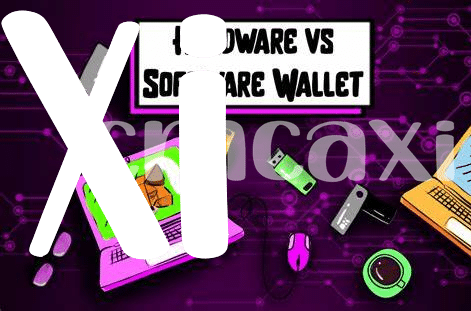🛠️ the Basics of Hardware Wallets: What You Need to Know

Imagine carrying a tiny vault in your pocket, one that holds the key to your digital treasure. That’s essentially what a hardware wallet is – a physical device designed to store your Bitcoin safely away from the online world. Unlike keeping your money in an online bank, where it’s accessible with a few clicks but potentially vulnerable to hackers, a hardware wallet is like having your own secure, offline safe. You plug it into a computer or use Bluetooth to access your funds, making it a cold storage option, as your Bitcoin isn’t stored on the internet. This extra barrier to access means that even if someone were to hack into your computer or mobile, they couldn’t get their hands on your precious Bitcoin without having the physical device in their hand. Here’s a simple breakdown of what makes hardware wallets stand out:
| Feature | Description |
|---|---|
| Physical Security | Keeps your Bitcoin offline, away from online threats. |
| Portability | Small enough to carry with you, like a set of keys. |
| User Control | You hold the keys to your digital currency, not a third party. |
It’s a blend of old-school security (think traditional safes and lockboxes) with modern technology, providing a unique shield against virtual thieves. Ideal for those looking to safeguard significant amounts of Bitcoin, it’s a fortress in your pocket, only accessible to you.
💻 Inside Software Wallets: Ease and Accessibility
Imagine carrying your digital money in your pocket, but instead of heavy coins, it’s neatly tucked away in an app on your phone or computer. That’s pretty much what software wallets are all about – they’re like virtual pocketbooks for your Bitcoin, making it easy to spend, receive, and keep an eye on your digital cash. These digital wallets are not only handy but also super accessible. Whether you’re chilling at home or on the move, as long as you have your device with you, you’re ready to manage your Bitcoin. Plus, getting started is as easy as downloading an app and following a few simple steps, no heavy lifting required!
Now, you might be wondering how software wallets stack up in the grand scheme of things, especially when it comes to jumping into the world of decentralized finance (DeFi) opportunities. For those dipping their toes in the Bitcoin pool, software wallets serve as an excellent gateway, offering a user-friendly platform for exploring the vast ocean of digital currencies. They not only help manage your Bitcoin but also pave the way for exciting possibilities. Think of it as holding a key to unlock a treasure chest of opportunities. To dive deeper into how Bitcoin can revolutionize content monetization through micropayments, don’t miss this insightful read: https://wikicrypto.news/revolutionizing-content-monetization-with-bitcoin-micropayments.
🔒 Security Showdown: Comparing Wallet Safety Features

When we look into the safety features of hardware and software bitcoin wallets, it’s a bit like comparing a safe to a lockbox. On one hand, hardware wallets 🛠️ are like mini vaults, physically storing your digital coins offline. This means they are less accessible to hackers because they’re not connected to the internet 24/7. You just plug in the device when you need to make a transaction, and voilà, your crypto is secure but still at your fingertips. It’s a solid choice for those who are extra cautious about their cyber security.
On the flip side, software wallets 💻 offer convenience by being readily accessible through your computer or mobile device, which is perfect for those who trade frequently. However, this also means they’re more exposed to the digital wild – susceptible to viruses, malware, and hacker attacks. Think of them as skilled gatekeepers; they’re vigilant but, because they’re always online, they face more risks. The balance between convenience and risk is a personal choice, grounded in how much you trade and your comfort level with security risks. Both wallet types offer layers of security protocols, such as encryption and multi-signature options, but the choice often boils down to the trade-off between utmost security and easy access.
💸 Transaction Ease and Fees: the Financial Side

When we dive into the financial nuances of handling Bitcoin, the contrast between hardware and software wallets gets really interesting. Think of a hardware wallet as a vault: ultra-secure but a bit more involved when you want to move your funds. There may be some fees associated with the transfer of your coins out of the vault, but these are generally low and are a small price for peace of mind. On the flip side, software wallets offer the convenience of a tap-and-go payment, making transactions as easy as sending an email. However, ease comes at a cost. Transaction fees can vary widely depending on network congestion and the wallet provider. So, while you may revel in the speed and simplicity, keeping an eye on the fees is crucial. Eyeing the economic aspect, it’s essential to grasp the synergy between bitcoin and the defi ecosystem explained to make informed decisions. Whether you’re more inclined towards the brick-and-mortar security of hardware wallets or the sleek, fast nature of software ones, understanding the financial implications of each helps you balance your need for security with the desire for convenience.
👥 User Experience: from Newbies to Experts
Navigating the world of Bitcoin wallets can be quite the adventure, especially when considering how user-friendly they are. For newcomers, software wallets shine bright, offering a welcoming hand with their intuitive designs and easy-to-follow guides. Imagine opening an app on your phone or computer, and with just a few clicks, you’re set up and ready to start your journey into cryptocurrency. It’s this simplicity and accessibility that make software wallets a go-to choice for those dipping their toes into the Bitcoin pool for the first time.
On the flip side, hardware wallets, while initially seeming like a trek through unfamiliar territory, provide their own rewards in terms of user experience. These physical devices, akin to high-security vaults for your digital treasure, might require a bit more effort to set up and understand. However, they offer peace of mind with robust security features that seasoned veterans in the crypto space greatly appreciate. Below is a simple breakdown of how each wallet type fares in terms of ease of setup and use:
| Wallet Type | Setup Ease | User Friendliness |
|---|---|---|
| Software Wallets | High | Very user-friendly, ideal for beginners |
| Hardware Wallets | Moderate | Requires initial learning, best for those more experienced |
This comparison indicates that, regardless of where you are on your crypto journey, there’s a wallet type that fits your level of expertise and needs, ensuring everyone can participate in the evolving world of Bitcoin.
🔄 Switching between Wallet Types: Things to Consider

Deciding to move your digital coins from a software wallet to a hardware one, or the other way around, isn’t a decision to take lightly. It’s like deciding whether to keep your hard-earned money under your mattress or in a bank. Both ways have their perks. For instance, switching to a hardware wallet might seem like a step towards fortifying your digital treasures against the online marauders lurking in the shadows of the internet. On the flip side, shifting to a software wallet offers unparalleled convenience, giving you the power to transact anywhere at the tip of your fingers. But, it’s not just about weighing the pros and cons. Consider the compatibility of your assets with the wallet, the ease of recovery should you forget your keys, and how this switch might affect your transaction habits, especially when considering making micropayments feasible with Bitcoin. Also, how it ties into the broader ecosystem, where the role of public ledgers in Bitcoin’s transparency can’t be overstated. 🔄🔍 The journey from one wallet type to another is a learning curve, but understanding the nuances can make the transition smoother, empowering you to make informed decisions that best suit your digital currency lifestyle.
